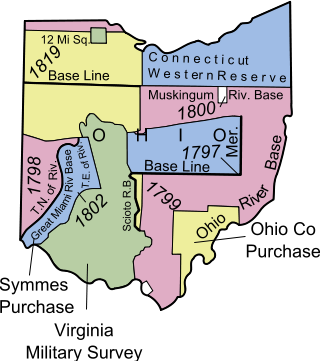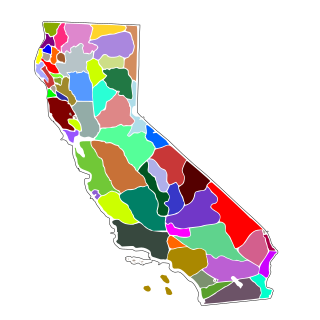
In common-law legal systems, laches is a lack of diligence and activity in making a legal claim, or moving forward with legal enforcement of a right, particularly in regard to equity. This means that it is an unreasonable delay that can be viewed as prejudicing the opposing party. When asserted in litigation, it is an equity defense, that is, a defense to a claim for an equitable remedy.

In the field of jurisprudence, equity is the particular body of law, developed in the English Court of Chancery, with the general purpose of providing legal remedies for cases wherein the common law is inflexible and cannot fairly resolve the disputed legal matter. Conceptually, equity was part of the historical origins of the system of common law of England, yet is a field of law separate from common law, because equity has its own unique rules and principles, and was administered by courts of equity.

Estoppel is a judicial device in common law legal systems whereby a court may prevent or "estop" a person from making assertions or from going back on his or her word; the person so prevented is said to be "estopped". Estoppel may prevent someone from bringing a particular claim. Legal doctrines of estoppel are based in both common law and equity. Estoppel is also a concept in international law.
Interpleader is a civil procedure device that allows a plaintiff or a defendant to initiate a lawsuit in order to compel two or more other parties to litigate a dispute. An interpleader action originates when the plaintiff holds property on behalf of another, but does not know to whom the property should be transferred. It is often used to resolve disputes arising under insurance contracts.

The Virginia Military District was an approximately 4.2 million acre (17,000 km²) area of land in what is now the state of Ohio that was reserved by Virginia to use as payment in lieu of cash for its veterans of the American Revolutionary War.

Clean hands, sometimes called the clean hands doctrine, unclean hands doctrine, or dirty hands doctrine, is an equitable defense in which the defendant argues that the plaintiff is not entitled to obtain an equitable remedy because the plaintiff is acting unethically or has acted in bad faith with respect to the subject of the complaint—that is, with "unclean hands". The defendant has the burden of proof to show the plaintiff is not acting in good faith. The doctrine is often stated as "those seeking equity must do equity" or "equity must come with clean hands". This is a matter of protocol, characterised by A. P. Herbert in Uncommon Law by his fictional Judge Mildew saying, "A dirty dog will not have justice by the court".
eBay Inc. v. MercExchange, L.L.C., 547 U.S. 388 (2006), is a case in which the Supreme Court of the United States unanimously determined that an injunction should not be automatically issued based on a finding of patent infringement, but also that an injunction should not be denied simply on the basis that the plaintiff does not practice the patented invention. Instead, a federal court must still weigh what the Court described as the four-factor test traditionally used to determine if an injunction should be issued.
Rowell v. Lindsay, 113 U.S. 97 (1885), was a bill brought by the appellants, John S. Rowell and Ira Rowell, the plaintiffs in the circuit court. The bill was in equity against Edmund J. Lindsay and William Lindsay, the appellees, to restrain the infringement of reissued letters patent No. 2,909, dated March 31, 1868, granted to the plaintiffs for 'a new and improved cultivator.
Bicknell v. Comstock, 113 U.S. 149 (1885), was an action to recover the cost paid for a tract of land in Iowa and the value of the improvements made by the defendant. The complaint alleged a conveyance by Bicknell to one Bennett, the subsequent transfer to the defendant by sundry mesne conveyances, valuable improvements on the premises made by Bennett and his grantees, and a failure of title in Bicknell when the deed was made by reason of a superior title in the State of Iowa under a land grant. Judgment below for plaintiff, to reverse which this writ of error was brought.
Bryan v. Kennett, 113 U.S. 179 (1885), was a United States Supreme Court case in which the Court held that, under the treaty providing for the Louisiana Purchase, the United States would recognize property interests granted by the previous sovereign governments prior to the Purchase, even if the grant had been inchoate or incomplete.
Prentice v. Stearns, 113 U.S. 435 (1885), was an action to recover possession of real estate and damages for its detention, the plaintiff in error being plaintiff below, and a citizen of Ohio, the defendant being a citizen of Minnesota, specifically recovery of real estate deeded from an Indian chief to A, in 1858, of a tract described by metes and bounds and further as:
being the land set off to the Indian Chief Buffalo at the Indian Treaty of September 30, 1854, and was afterwards disposed of by said Buffalo to said A, and is now recorded with the government documents
Union Pacific Railway Co. v. Cheyenne, 113 U.S. 516 (1885), was an appeal from the Supreme Court of the Territory of Wyoming regarding a bill charging that the collection of an illegal tax would involve the plaintiff in a multiplicity of suits as to the title of lots being laid out and sold, which would prevent their sale, and which would cloud the title to all his real estate, states a case for relief in equity.
Kansas Pacific R. Co. v. Dunmeyer, 113 U.S. 629 (1885), was a writ of error to the Supreme Court of Kansas. The action was brought in that court on a covenant of warranty of title to two pieces of land in a deed of conveyance made by the Kansas Pacific Railroad Company to Dunmeyer. The Pacific Railroad Acts generally allowed railroads to sell public land adjacent to their routes as part of a land grant to raise funds but made an exception for land that already had a homestead filed. G. B. Dunmeyer claimed he purchased land that already had an existing claim.
Cooper Manufacturing Co. v. Ferguson, 113 U.S. 727 (1885), was a suit regarding the legitimacy of a sale of a steam engine and other machinery in the State of Ohio.

Crabb v Arun District Council [1975] EWCA Civ 7 is a leading English land law and contract case concerning "proprietary estoppel". Lord Denning MR affirmed that where agreements concern the acquisition of rights over land, there is no need for both parties to provide a consideration for upholding the bargain. While promissory estoppel cannot found a cause of action it was held that in the peculiar situation of land, consideration is not necessary at all.
Wilcox v. Jackson, 38 U.S. 498 (1839), sometimes nicknamed the "Beaubien Land Case" was a legal action decided by the United States Supreme Court concerning the land under Fort Dearborn shortly after incorporation of Chicago as a town in Cook County, Illinois.

Aboriginal title in California refers to the aboriginal title land rights of the indigenous peoples of California. The state is unique in that no Native American tribe in California is the counterparty to a ratified federal treaty. Therefore, all the Indian reservations in the state were created by federal statute or executive order.

The Supreme Court of the United States, under Chief Justice Roger B. Taney (1836–1864), issued several important decisions on the status of aboriginal title in the United States, building on the opinions of aboriginal title in the Marshall Court.

Pennington v Waine[2002] EWCA Civ 227 is an English trusts law case, concerning the requirements for a trust to be properly constituted, and the operation of constructive trusts. The case represents an equitable exception to the need for a complete transfer of property in law.

East Tennessee Natural Gas Co. v. Sage, 361 F.3d 808, cert. denied, 543 U.S. 978 (2004), is a seminal case in which the United States Court of Appeals for the Fourth Circuit held that a gas company using its powers of eminent domain under the Natural Gas Act can obtain immediate possession by satisfying the requirements for a preliminary injunction. This process effectively permits the condemning company to use a "quick take" procedure.








